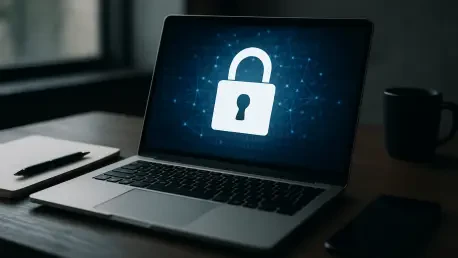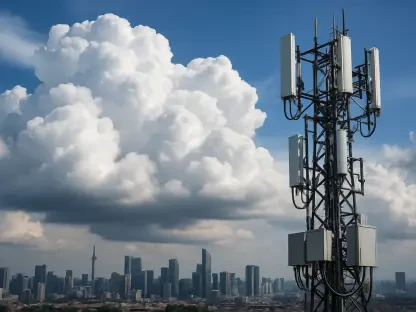In an era where every click, search, and scroll can be tracked, the internet has become a double-edged sword, offering unparalleled connectivity while exposing users to significant privacy risks. Imagine logging into a public Wi-Fi network at a bustling airport, unaware that a hacker nearby is intercepting every piece of data transmitted, from personal emails to banking details. This scenario is far from hypothetical; it’s a daily reality for millions who navigate the digital landscape without adequate protection. Internet Service Providers (ISPs), advertisers, and even malicious actors relentlessly monitor online activities, creating a pressing need for tools that safeguard digital footprints. Among these tools, Virtual Private Networks (VPNs) stand out as a powerful solution, offering a shield against surveillance and a gateway to unrestricted access. By delving into the mechanics and benefits of VPNs, it becomes clear how they empower users to reclaim control over their online presence.
Understanding the Core Mechanics of VPNs
Securing Data Through Encryption
At the heart of a VPN’s functionality lies its ability to create a secure, encrypted tunnel for internet traffic, effectively shielding user data from prying eyes. When a connection is established through a VPN, all information sent or received is transformed into an unreadable format, ensuring that even if intercepted, it remains indecipherable to unauthorized parties. This encryption is particularly vital on unsecured networks, such as those found in coffee shops or public transport hubs, where hackers often exploit vulnerabilities to steal sensitive details like passwords or credit card numbers. Beyond just obscuring data, VPNs also mask the user’s real IP address by routing traffic through a remote server, making it appear as though the activity originates from a different location. This dual layer of protection—encryption and IP masking—forms a robust barrier against digital eavesdropping, allowing users to browse with confidence in environments that would otherwise pose significant risks to their privacy.
Altering Digital Identity for Anonymity
Another critical aspect of VPN technology is its capacity to alter a user’s digital identity, providing a level of anonymity that is increasingly necessary in today’s surveillance-heavy online world. By connecting to a server in a different city or country, a VPN assigns a new IP address tied to that location, effectively disguising the user’s actual whereabouts. This not only prevents ISPs and websites from tracking precise locations but also thwarts advertisers who rely on such data to build intrusive profiles. For individuals under oppressive regimes or in regions with heavy internet monitoring, this feature becomes a lifeline, enabling discreet access to information without fear of retribution. The ability to appear as though browsing from another part of the world also means users can test how content or services vary by region, highlighting the disparities in digital access. This anonymity isn’t just about hiding; it’s about ensuring that personal choices remain private and untainted by external observation or interference.
Exploring the Broader Benefits of VPN Usage
Defending Against ISP Throttling and Surveillance
One of the less obvious yet equally important advantages of using a VPN is its role in countering ISP practices that undermine user experience, such as bandwidth throttling. Many ISPs intentionally slow down internet speeds for specific activities like streaming or gaming, often to manage network congestion or push users toward premium plans. A VPN disrupts this by encrypting traffic, making it impossible for providers to discern the nature of the data being transmitted and thus preventing targeted slowdowns. Additionally, ISPs frequently log browsing histories and sell this information to third parties, a practice that erodes personal privacy. With a VPN in place, such monitoring becomes futile as the data remains encrypted and the user’s activities are hidden behind a remote server’s IP. This protection ensures not only a smoother online experience but also a fundamental right to privacy, free from the commercial exploitation of personal habits by service providers.
Bypassing Geographic and Content Restrictions
VPNs also serve as a key to unlocking the internet’s full potential by bypassing geographic and content restrictions that limit access based on location. In countries with stringent censorship, such as those imposing bans on social media or independent news outlets, connecting to a server in a less restricted region allows users to access vital information and communicate freely. Even in less oppressive environments, certain content—be it streaming platforms or specific websites—may be unavailable due to licensing agreements or local laws. A VPN circumvents these barriers by simulating a presence in a permissible area, granting access to a broader digital world. This capability is invaluable for travelers or expatriates seeking familiar services, as well as for anyone advocating for an open internet where information isn’t arbitrarily walled off. The freedom to explore content without borders underscores a VPN’s role not just in security, but in fostering a truly global online community.
Empowering Safe Navigation on Public Networks
Public Wi-Fi networks, while convenient, are often a breeding ground for cyber threats, making VPNs an essential tool for safe navigation in such spaces. Whether at a hotel, library, or airport, these networks rarely employ strong security measures, leaving users vulnerable to attacks where hackers intercept unencrypted data. A VPN addresses this by encrypting all traffic, ensuring that even if data is captured, it remains unusable to malicious actors. This protection extends to safeguarding critical transactions, such as online banking or shopping, which are prime targets for theft in public settings. For frequent travelers or remote workers relying on these networks, the peace of mind offered by a VPN is indispensable, transforming potentially risky connections into secure channels. By prioritizing encryption in these environments, users can maintain their digital safety without sacrificing the convenience of staying connected on the go.
Final Thoughts on Digital Empowerment
Reflecting on the landscape of online privacy, it is evident that the challenges of data surveillance and restricted access have reached critical levels, demanding robust solutions. VPNs emerge as a cornerstone of digital defense, providing encryption and anonymity that shield users from the invasive practices of ISPs and cybercriminals alike. Their ability to prevent throttling and unlock content across borders further solidifies their importance in maintaining an equitable internet. Looking ahead, individuals are encouraged to explore reputable VPN services, taking advantage of trial periods or money-back guarantees to find a fit for their needs. Beyond personal use, advocating for broader awareness about digital rights can amplify the push for privacy as a universal standard. As technology continues to evolve, staying informed about emerging tools and policies will be crucial in sustaining the fight for a free and secure online environment, ensuring that empowerment remains within everyone’s reach.









